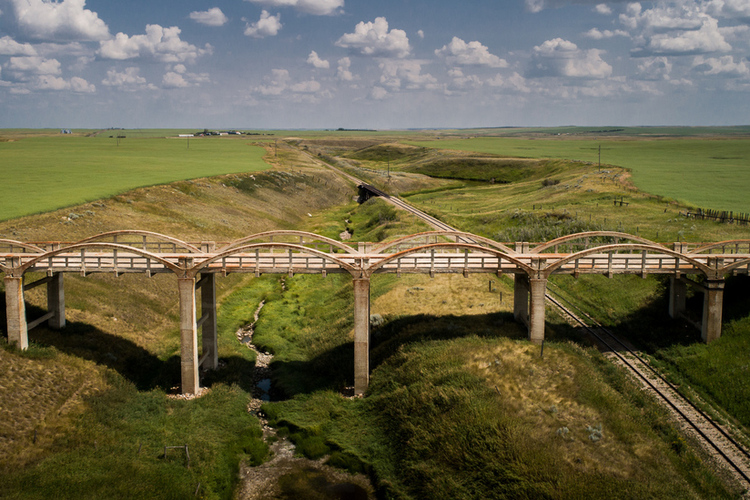Jan 9, 2024 By Vanessa Mathews, Associate Professor in the Department of Geography & Environmental Studies, Univeristy of Regina I work at the University of Regina in Saskatchewan, teaching and researching across a broad array of interests and specializations (housing, heritage, adaptive reuse, sustainability, and urban change). Over the past decade, the concept of heritage has entered into and out of my academic work in multifaceted and conflicting ways. At times, it’s featured as the villain of my narrative, the catalyst that drives up housing prices and leads to renovictions and displacement. Before its value as something old is realized though, it’s the hero of my story, providing affordable spaces for low income residents due to processes of down filtering. I position the preservation of built form as a way to foster sense of place and belonging, while at the same time, I also position it as embodying darkness and violence as a set of settler colonial representations and practices. When I ask myself who is heritage for, and who does it serve, it’s never clear and I often end up thinking through the fact that it’s always in conflict. I have sat with the conflict of heritage because I recognize that it’s easier to walk away than to confront and engage. I’ve sat with the conflict because I recognize the value and importance of retaining the past as a way to remember. I’ve sat with the conflict because I recognize that heritage is wrapped up with social cohesion, wellbeing and belonging. I’ve sat with the conflict because heritage exists as a spectrum and not a set of binaries. I was immediately drawn to the “transforming heritage” theme for the most recent National Trust conference hosted in Ottawa. This was the third conference for the National Trust I have attended. I appreciate the broad array of attendees that the conference draws together and find that I learn a lot from the range of perspectives (including practitioners, academics, professionals, planners, developers). Over the course of the two days, I attended numerous sessions. Penned amidst my notes were questions and points for further/future reflection. They included: “what is the role of heritage if not for present value?” “who is heritage for?” and “heritage is not at odds with density”. The latter appeared on several pages, underlined and circled. Even when it had nothing to do with the presentations, it was a thought that continued to enter into my notes. It entered in because it responded to a conflict I have grappled with for years. Heritage is at times weaponized to keep certain bodies out, framed as a way to “preserve character” or “retain property values” in a not-in-my-backyard (NIMBY) type scenario. Most involved in housing advocacy work understand this reframe to “heritage” as an exclusionary act. During the conference, it became increasingly clear that I needed to shift my internal definition of heritage as precious to heritage (tangible and intangible) as process. Most of the historic sites, spaces, and collections (oral/written/physical) that exist in our communities are not frozen in time. Instead, they work for our time, or at least they should. This isn’t to say that we should demolish every old building, but we shouldn’t fight to keep every old building in its present form either, if keeping it is a mode of exclusion. If we are in the business of “saving places,” we must reflect on who and what we are saving them for and from. Heritage sites/representations need to be opened up to alternative accounts/stories of the past. They need to be opened to conflict, not as a mode of division but as a mode of resolution, of undoing. If we take seriously the need to include and engage Indigenous ways of knowing and being in the heritage sector, truth is the first step on the path to reconciliation. If we take seriously our role in climate action and housing affordability, historic sites/neighbourhoods need to be opened to densification and increased housing supply. Even in those instances when the structures themselves can’t be changed, the meanings, understandings, and narratives of the past (and present) must be transformed. Heritage is not static: it exists as a process, in process, to be processed. Vanessa Mathews is an Associate Professor in the Department of Geography & Environmental Studies at the University of Regina. She is a board member with the REM, Regina’s Museum without Walls, and a member of the Canadian Association of Heritage Professionals.Moving towards heritage as process

